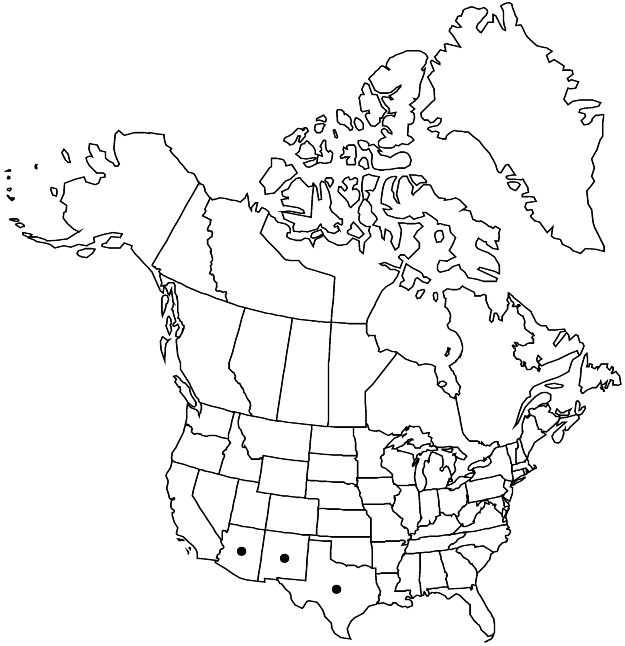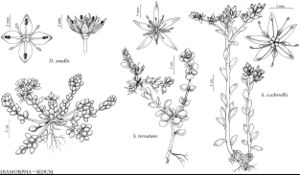Difference between revisions of "Sedum cockerellii"
in N. L. Britton and J. N. Rose, New N. Amer. Crassul., 41. 1903,.
FNA>Volume Importer |
imported>Volume Importer |
||
| (5 intermediate revisions by 2 users not shown) | |||
| Line 1: | Line 1: | ||
{{Treatment/ID | {{Treatment/ID | ||
|accepted_name=Sedum cockerellii | |accepted_name=Sedum cockerellii | ||
| − | |accepted_authority=Britton | + | |accepted_authority=Britton |
|publications={{Treatment/Publication | |publications={{Treatment/Publication | ||
|title=in N. L. Britton and J. N. Rose, New N. Amer. Crassul., | |title=in N. L. Britton and J. N. Rose, New N. Amer. Crassul., | ||
| Line 10: | Line 10: | ||
|name=Cockerellia cockerellii | |name=Cockerellia cockerellii | ||
|authority=(Britton) Á. Löve & D. Löve | |authority=(Britton) Á. Löve & D. Löve | ||
| + | |rank=species | ||
}} | }} | ||
|hierarchy=Crassulaceae;Sedum;Sedum cockerellii | |hierarchy=Crassulaceae;Sedum;Sedum cockerellii | ||
| Line 34: | Line 35: | ||
-->{{#Taxon: | -->{{#Taxon: | ||
name=Sedum cockerellii | name=Sedum cockerellii | ||
| − | + | |authority=Britton | |
| − | |authority=Britton | ||
|rank=species | |rank=species | ||
|parent rank=genus | |parent rank=genus | ||
| Line 49: | Line 49: | ||
|publication year= | |publication year= | ||
|special status= | |special status= | ||
| − | |source xml=https:// | + | |source xml=https://bitbucket.org/aafc-mbb/fna-data-curation/src/2e0870ddd59836b60bcf96646a41e87ea5a5943a/coarse_grained_fna_xml/V8/V8_408.xml |
|genus=Sedum | |genus=Sedum | ||
|species=Sedum cockerellii | |species=Sedum cockerellii | ||
Latest revision as of 22:43, 5 November 2020
Herbs, perennial, tufted, glabrous. Stems rootstocks, erect, rarely branched, (smooth or papillose), bearing erect shoots and axillary rosettes. Leaves alternate, spreading to ascending, sessile; blade green or yellow-green, sometimes glaucous, obovate or oblong-spatulate, laminar, 9.5–15 × 1.5–3.5 mm, base spurred, not scarious, apex rounded to obtuse, (surfaces papillose). Flowering shoots erect, simple, 5–10 cm, (sometimes papillose distally); leaf blades oblanceolate-elliptic, oblanceolate-oblong, or spatulate, base short-spurred; offsets not formed. Inflorescences 3-parted cymes, (4–)10–27-flowered, 1–3-branched, sometimes monochasially; branches ± arched, spreading, or sometimes recurved, sometimes forked; bracts similar to leaves, smaller. Pedicels 1–3.5 mm. Flowers 5-merous; sepals erect to spreading, distinct basally, yellow-green to yellow, lanceolate-linear or clavate-oblong, unequal, 4.5–12 × 1.4–2.6 mm, apex acute or obtuse, (papillose); petals erect, curving upward distally, distinct, rarely slightly connate, white streaked with pink, lanceolate-elliptic, not carinate, 5–8 mm, apex obtuse, with minute mucronate appendage; filaments white; anthers purple or brown; nectar scales yellow or creamy white, square. Carpels erect in fruit, distinct, pale brown. 2n = 28, 30, 32, (34), 58, 64.
Phenology: Flowering late summer–early autumn.
Habitat: Pine forests in high mountains, shallow soils, usually in shade
Elevation: 1600-3200 m
Distribution

Ariz., N.Mex., Tex.
Discussion
Mature carpels of Sedum cockerellii have conspicuous, divergent beaks.
Selected References
None.
